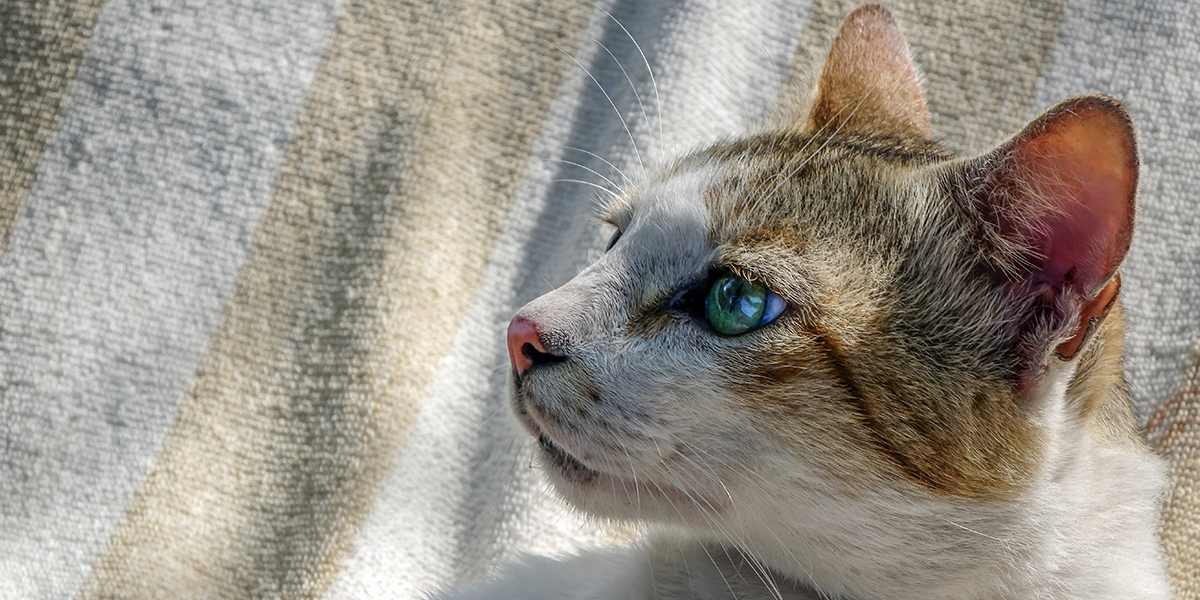
A vaccination for FeLV exists but it is not 100 percent effective. Consult your veterinarian if any of these signs appear abnormal.

A cat can be exposed to feline leukemia virus through contact with the bodily fluids of an infected cat during grooming fighting or even from its mother.
Can cats survive feline leukemia. If we want to mention some figures we can say that about 25 of cats with feline leukemia die within 1 year after being diagnosed. But 75 survive for. A cat infected with feline leukemia cannot be expected to survive long if he remains in an outdoor environment.
A simple flu virus or infection can have extremely deleterious effects on the cats weakened immune system thus spiraling the cat into a debilitating state. Not only does this hurt your cat the numerous vet visits to treat these uncontrollable secondary infections become very costly over time. Once your sick friend reaches the second stage he can survive comfortably for several months with the proper care.
In some cases cats with feline leukemia live for up to three years after diagnosis. In fact roughly 20 percent of infected felines live more than three years although quality of life may be diminished explains the ASPCA. Cats that are diagnosed with feline leukemia virus have a median survival time of two and a half years.
Careful monitoring of a cats weight appetite activity level elimination habits appearance of the mouth eyes and behavior will be important parts of managing the disease. Consult your veterinarian if any of these signs appear abnormal. A cat can be exposed to feline leukemia virus through contact with the bodily fluids of an infected cat during grooming fighting or even from its mother.
The virus enters the body where the immune system has a chance to fight it off. Thankfully many healthy normal cats are able to do so. Some partially fend off illness but can remain infected and spread the disease.
While the virus that causes Feline Leukemia Virus cannot live long outside the cats body practice proper hygiene after touching or handling your cat so that you dont transmit it unwittingly to other cats. Always wash your hands with soap after contact with pets. Cat mucus saliva urine feces and milk all have a large viral load of feline leukemia virus.
The virus can only survive a short time in open dry air but can survive longer in wet litter boxes water bowls and mucus that me be left in a feeding dish. FeLV-positive cats can have good lives. Leukemia-positive cats must be kept indoors and fed the best possible diet.
Regular vet checkups are crucial for. Feline leukemia virus is a highly infectious disease in cats but with the right treatment and care cats with the virus can live long and healthy lives. Feline leukaemia virus FeLV is an incurable viral infection that eventually produces fatal illness in infected cats.
It is estimated that one to two per cent of cats in Britain are permanently infected and the majority die within four years of FeLV detection. There is no risk to humans. Although it can be risky the Cornell University College of Veterinary Medicine in its brochure on Feline Leukemia does recommend that FeLV-positive cats be spayed or neutered.
Probably the level of risk of Ashies surgery depends on which subgroup or subgroups of FeLV are present in Ashies body. Chylotorax fluid accumulation in the chest and chest tumors are also very frequent in cats with feline leukemia. The expected lifespan of an infected cat ranges between 2 and 3 years.
15 of them can survive longer than 4 years. Vaccination does not help in infected cats. Feline leukemia virus FeLV is a virus that can be transmitted between cats via saliva.
Its a tragic and fatal disease that is responsible for many cat deaths worldwide every year. More than 50 of infected cats die within 2-3 years after being infected. Most deaths in cats occur in the first year after diagnosis.
FeLV is a retrovirus that compromises a cats immune system. FeLV is a feline-only virus that cannot be transmitted to humans. Cats who test positive for FeLV can live for many years without serious symptoms.
A positive FeLV test result SHOULD NOT be a death sentence. A vaccination for FeLV exists but it is not 100 percent effective. What happens when a cat has feline leukemia.
Community Cats Podcast is teaming up with FeLVs experts on July 17 for an online podcast. Feline Leukaemia Virus or FeLV is a virus that causes a fatal disease by affecting the immune system. It can cause vulnerability to other infections anaemia or tumours.
It does not affect humans. You can vaccinate your cat against the virus and although the amount of FeLV in the cat population has reduced significantly in recent times it is.